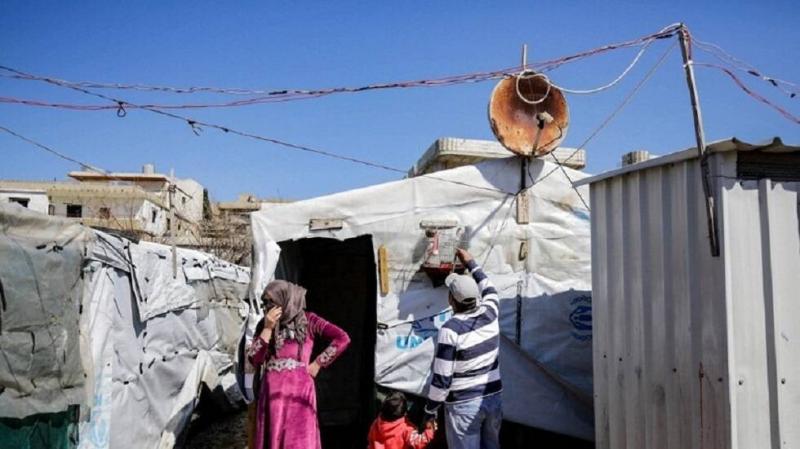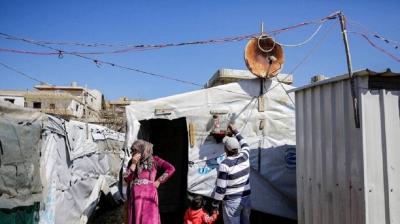The issue of displaced Syrians has erupted forcefully in the face of the Lebanese political class, adding a new contentious topic to the already complicated and stalled files. What transpired during the past week warns of a crisis that carries significant risks for the country, reminiscent of what occurred before the onset of the civil war in 1975 with the Palestinian refugee file, where the Lebanese were divided to the point of fighting between one group defending the Palestinians and their cause, and another seeing their presence as a threat.
It is certain that the issue of Syrian displaced individuals is exhausting Lebanon, and the troubles resulting from more than two million of them on Lebanese territory surpass all imagination. These troubles are not limited to the security risks arising from killings, kidnappings, and thefts committed by some of them; they also extend to the beleaguered Lebanese economy suffering from stagnation and unemployment. The funds leaving Lebanon via the displaced are estimated to exceed $5 billion annually, which is about 20% of the gross national income. Moreover, the burden of these individuals on the infrastructure—such as water, electricity, sewage networks, and roads—is immense, and the state is exhausted and unable to compensate for these losses.
The criticism of the visit by European Commission President Ursula von der Leyen and Cypriot President Nikos Christodoulides to Beirut last week is justified in some aspects, as the visitors announced a funding plan for Lebanon aimed at addressing some aspects of the displacement crisis amounting to nearly one billion euros. This was viewed by some as a bribe to the government to keep the displaced in Lebanon, and possibly to settle them there. However, the justification provided by Prime Minister Najib Mikati was more convincing, as he confirmed that the funds were unconditional and designated to assist the army and security forces, which need significant resources to pursue offenders among the displaced, to control operations entering and exiting Lebanon, and to bolster the deteriorating infrastructure that can no longer serve over 5 million Lebanese along with nearly 3 million displaced individuals, refugees, and non-Lebanese residents. Mikati called on Speaker of the Parliament Nabih Berri to convene a general session to discuss the issue transparently and from all angles.
Approaching the file with populism or agitation is unhelpful and may exacerbate the problem. The accusations directed against the government are exaggerated, and it is not appropriate to consider the government engaged in executing a settlement deal with any party, as the majority of government ministers are not inclined to such a notion at all. Conversely, the government’s measures are insufficient and lack transparency; it is unacceptable under any circumstances to hear off-the-cuff statements from some of its ministers, with some considering that the camps for the displaced resemble camps for armed fighters. This is an entirely inaccurate generalization, as among the displaced are opposition figures, the tortured, and those threatened, who cannot return to their country. Among them are also individuals exploiting the displacement for committing criminal acts and engaging in illicit profiteering, and some of these are supported by influential forces. The Lebanese authorities must work on expelling them from Lebanon, as they cross into Syria through borders or smuggling routes whenever they wish.
There are political parties quietly working to find reasonable solutions for the ongoing crisis. One of these is a plan presented by the Progressive Socialist Party, which balances the need to uphold national interests and expel all residents not holding a refugee card or work permit while suppressing any legal violations and threats to the livelihoods and security of Lebanese citizens. This is balanced against respecting the relevant international agreements that Lebanon has signed, which require the authorities to provide protection for those fleeing from the hell of killings and physical threats in their country.
It is essential to extricate the Syrian displacement file from the bidding market; all forces and parties want to organize this file and control the violations, and no entity in Lebanon supports the settlement or the continued presence of the displaced.




